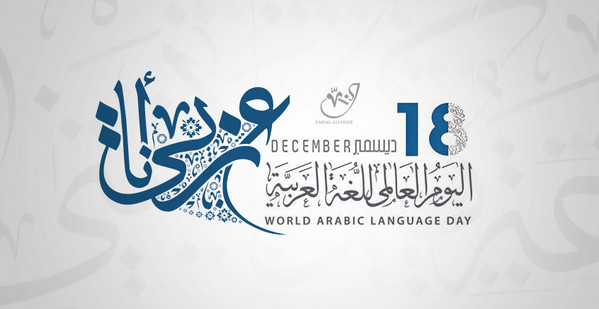Tunis Hebdo | The “World Arab Language Day”, fixed by UNESCO on December 18 of each year, has gone, once again, unnoticed, like previous years. No manifestation, of any kind whatsoever, has marked this date, each of which apprehends the importance; The Arabic language being an integral part of our identity specificity, our history and our civilization.
The UN initiative is part of the struggle engaged, here as elsewhere, against the loss of linguistic heritage, which has reached an unprecedented scale in the history of humanity. They were more than 130,000 languages spoken from the last century. They are only some 5000 today. And the linguists predict that at the end of the 21st century, nearly 4,500 languages of the world will have disappeared, including a good twenty for the only year that ends.
Is Arabic threatened with extinction? A century ago, more than 100 countries used the characters of the Arabic alphabet. Some, much less numerous, still use them today: Pakistan, Afghanistan, Iran, Caucasus, Indian, Chinese communities and even Vietnam and Cambodia. As for Turkey, which had “exported” the Arab characters deep in Europe and Asia, it preferred, ultimately, “swap” against Latin characters, under the reign of Atatürk.
The adoption of the Arabic language by the UN, a few years ago, as one of the six official languages (with English, French, Russian, Chinese and Spanish) allowed it to regenerate and go back in time. Her “rehabilitation” by the UN organization delivered her, one might say, a long and dark period of stagnation, during which she knew, perhaps more than any other language, many vicissitudes. Saved by the Gong!
Long before the appearance of Islam, already, the time of “Jahilya” had restricted the scope of the Arabic language. Far from making it the language of a nation and a civilization, this era had confined Arabic in a tribal and sectarian context, as Hanna El-Fakhouri demonstrates in her “History of Arab literature”.
Based in the spotlight by Islam and the Koran, which opened up new horizons in the fields of legislation, philosophy and culture, the Arabic language was quick to sink into a new eclipse due to the political decadence of the Arabs themselves. The advent of the colonial era in the Machrek and the Maghreb almost carried the blow of grace to the Arabic language. At the edge of the abyss, this language only had its salvation in the process of decolonization.
However, if the colonial era is over today (at least in its classic form), the Arabic language is nonetheless threatened by other dangers, well with us. Among these dangers, the recurring call of some “modernist innovators” in favor of a simplification which would swallow literary Arabic at the level of dialectal jargon; And this essentially by means of questioning all grammaticals and others.
The followers of this path are generally academics, trained in foreign establishments. Their quest tends to sing other similar movements, European in particular, where there is also a question of “reforming” writing (French, German, etc.). Their attempt raised, a few years ago, a real lifting of shields, due precisely to the gravity of this project, considered as an “identity desecration”, by the guardians of the temple.
Trusting the literary against the dialect, affirm the defenders of “reformists”, it is first of all “defame” religion (literary Arabic being the language of the Koran); It is then infringement of the unity of the Arab world, the literary language being a factor of linguistic unity, even of unity, and a powerful element of identity.
If it is true that the dialect remains the language of popular strata, souks and street, on the other hand, and under no pretext it should become that of literature. The use of dialect would mean the break with the cultural heritage of the past. Colonial policy had tried, on several occasions, to convince the “Aboriginals” that their literary language was unusable in everyday life.
The dialect was even taught in schools and high schools, but the “conspiracy” ended up failing thanks to the activism of some awakened minds. “New followers of the spoken language” are far from disarming.
Tahar Selmi








